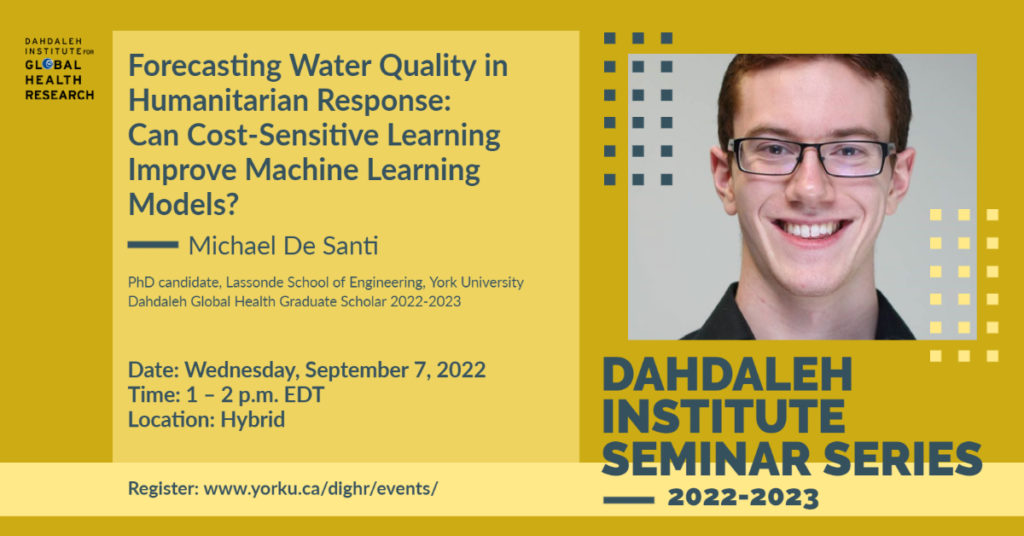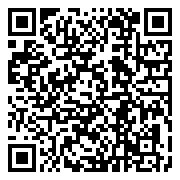Forecasting Water Quality in Humanitarian Response, with Michael De Santi
Ensuring sufficient free residual chlorine (FRC) up to the time and place that water is consumed in refugee and internally displaced person settlements is essential for preventing waterborne illnesses like cholera and hepatitis E. However, providing too much FRC can lead to disinfection by-products and issues with taste and odour acceptability. To balance these competing challenges of over- and under-chlorination, water system operators need accurate predictions of the risk of having insufficient FRC when determining chlorination targets.
This presentation will discuss recent innovations used in the SWOT models by improving how machine learning models actually learn. The Safe Water Optimization Tool (SWOT) uses artificial neural network (ANN) ensemble forecasting systems (EFS), a type of probabilistic machine learning tool, to predict point-of-use FRC in refugee and internally displaced person settlements and to generate risk-based FRC targets for water system operators in these settlements.
As machine learning tools gain increasing prevalence in a range of applications, including humanitarian response, this discussion will provide important insight into how to design these models to provide the best possible alignment with the modeller's desired impact.
Register below and join us on Wednesday, September 7 at 1 p.m.

Speaker Profile: Michael De Santi is a graduate student fellow at the Dahdaleh Institute and a PhD candidate in the Department of Civil Engineering at York’s Lassonde School of Engineering. He obtained his MASc in Civil Engineering at York University, where he investigated the use of machine learning to predict water quality in refugee and internally displaced person settlements. He deployed this work while working as the modelling researcher on the Safe Water Optimization Tool (SWOT) project at the Dahdaleh Institute, developing new user-facing tools to help water system operators ensure safe water in humanitarian response settings. Prior to joining the SWOT team, Michael obtained a BASc in Civil Engineering from the University of Toronto and worked for several years as a water design specialist with Jacobs Engineering Group. His current research focuses on integrating engineering and health-based approaches to develop new tools and modelling approaches to holistically assess water safety risk in humanitarian response settings.
RSVP
Registration is now closed.
Thank you for your interest in this seminar.
Please find the recap and recording here.

